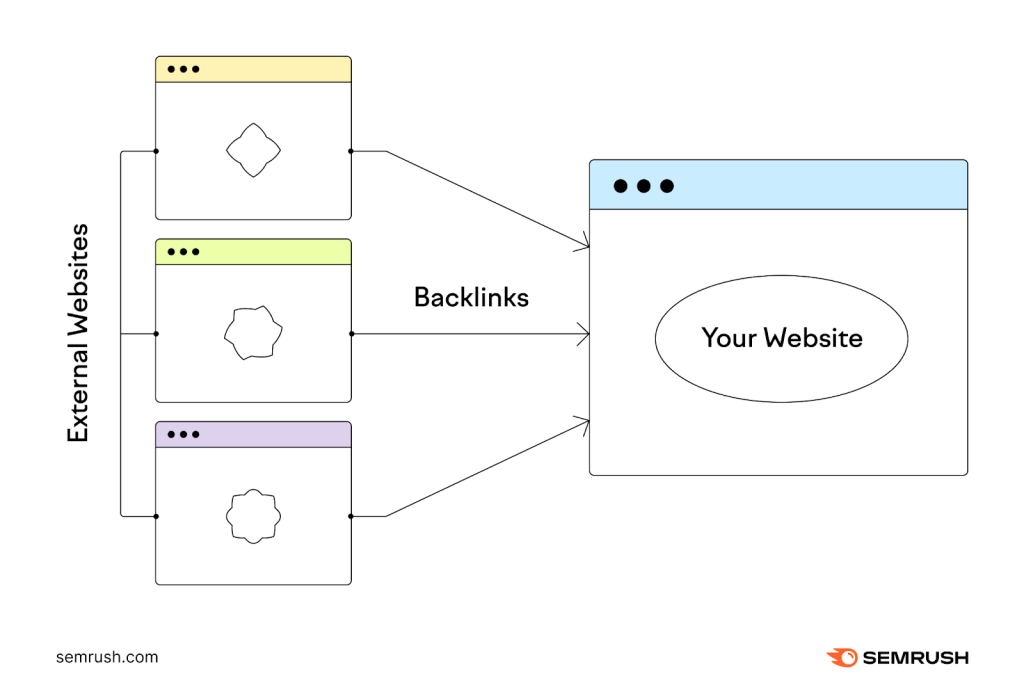Link building is an SEO strategy that involves acquiring links from other websites to your own.
Search engines, including Google, may see these links as signals of authority. This perception can result in higher rankings in organic search results.
Google treats certain backlinks (links from other sites) as endorsements. If many high-quality domains link to your site, Google may view your site as trustworthy.

For example, Semrush’s Backlink Analytics tool shows that bbc.co.uk has backlinks from more than 1 million domains, including reputable sites like cdc.gov, microsoft.com, and britannica.com.
Google’s algorithm factors in this robust backlink profile when determining bbc.co.uk’s placement in relevant search results. The site likely receives strong rankings, partly due to these backlinks.
Google considers many other ranking factors too. However, our study shows that 8 of the top 20 ranking factors relate to backlinks.
Backlinks can accumulate naturally, but proactively building links can help you stay competitive in search—if you attract the right links.
What Affects a Backlink’s Value?
Not all backlinks have the same impact on SEO. Some may have no effect at all, and ones obtained through spammy tactics (sometimes called toxic backlinks) can be harmful.
Here are the primary factors that influence a backlink’s value:
Authority
Links from authoritative sites usually have more SEO impact. For example, a backlink from bbc.co.uk will likely affect your SEO more than one from an unknown blog.
Semrush measures authoritativeness with a metric called Authority Score—which is on a 100-point scale and factors in:
- Link power: Quality and quantity of a site’s backlinks
- Organic traffic: Estimated monthly unpaid visits from search engines
- Natural profile: How spam-free a site’s backlink profile seems
In the Semrush Link Building Tool, you can check each prospect’s Authority Score under the “AS” column.
